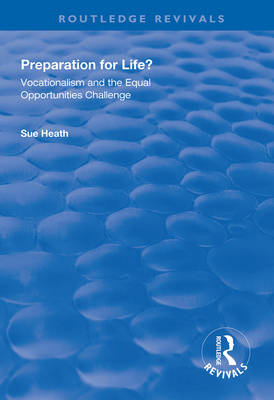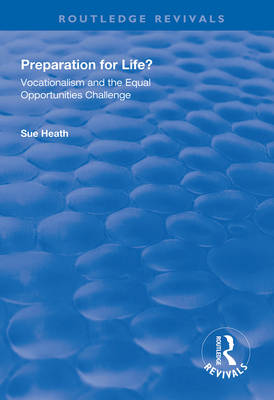
- Afhalen na 1 uur in een winkel met voorraad
- Gratis thuislevering in België vanaf € 30
- Ruim aanbod met 7 miljoen producten
- Afhalen na 1 uur in een winkel met voorraad
- Gratis thuislevering in België vanaf € 30
- Ruim aanbod met 7 miljoen producten
Omschrijving
First published in 1997, this volume contributes to the debate on the ground-breaking Technical and Vocational Education Initiative (TVEI) introduced by Margaret Thatcher by exploring the implications of its equal opportunities policy. The scheme was announced in 1982, piloted in 1983, extended nationally in 1987 and ended in 1997. It responded to criticisms that the education system was failing to meet the needs of employers and committed to equal opportunities for boys and girls along with increasing access to technology at the genesis of the computing era. The TVEI represented the first major intervention by central Government in curriculum development in England and was organised on a local authority level. The author, Sue Heath, had experienced mixed messages for what students of each gender could expect to achieve and she remained fascinated by the implications of the TVEI for 1980s school curriculums. Based on research begun in 1989, the volume reassesses the significance of the TEVI as a landmark policy in education. Heath examines areas including vocationalism, the issue of gender, implementing the TVEI locally, the curricular experiences of TVEI pupils and whether the TVEI succeeded in preparing students for the world of work and later life.
Specificaties
Betrokkenen
- Auteur(s):
- Uitgeverij:
Inhoud
- Aantal bladzijden:
- 228
- Taal:
- Engels
- Reeks:
Eigenschappen
- Productcode (EAN):
- 9781138326644
- Verschijningsdatum:
- 9/08/2018
- Uitvoering:
- Hardcover
- Formaat:
- Genaaid
- Afmetingen:
- 148 mm x 210 mm
- Gewicht:
- 580 g

Alleen bij Standaard Boekhandel
Beoordelingen
We publiceren alleen reviews die voldoen aan de voorwaarden voor reviews. Bekijk onze voorwaarden voor reviews.











